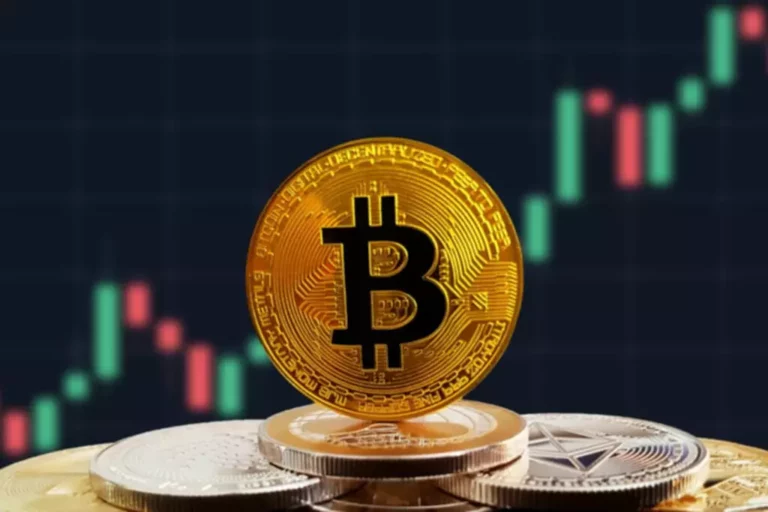These newer options are gaining recognition, especially with institutional buyers seeking extra funding exposure to cryptocurrency and tokens. They supply an choice to put money into cryptocurrency that doesn’t require managing keys or transacting on the blockchain. They do, nonetheless, charge larger fees and only present publicity to a fraction of the cryptocurrencies and trading pairs provided on exchanges. Both custodial and non-custodial wallets have their very own sets of benefits and limitations.
Unlike with a centralised custodial answer, users have full management and possession of their crypto when they use Crypto.com DeFi Wallet. While non-custodial wallets are typically safer than custodial ones as they’re much less susceptible to hacks, they are not utterly risk-free. It’s essential to maintain your system safe, often update your pockets software program, and never share your non-public keys or restoration phrase.
The pockets could be connected to a Coinbase change account to facilitate the simple switch of crypto, but this is elective. Their crypto is definitely held in a custodial wallet by Binance/Coinbase, who now assume accountability for the administration of the wallet keys. Just remember to follow best practices in order that you’ll find a way to recover it must you lose it. However, when you do find yourself dropping access to your crypto pockets or neglect your password, there’s a back-up process. Typically, you ought to have generated a sequential string of 12, 18 or 24 words that is displayed upon setting up your crypto wallet. Some wallets assist a extensive range of cryptocurrencies, while others are limited to specific networks like Ethereum.
It Comes All The Way Down To The Way You Want To Secure Your Crypto
And since custodial wallets can’t operate offline, they are more prone to hacks and online theft. With a custodial pockets, every transaction requires approval from the central exchange. Consequently, there could be a delay within the transaction going via. The transaction history can additionally be not recorded on the underlying blockchain in real-time, and transaction prices are usually higher due to the involvement of custodians and different intermediaries. We answer your questions around custodial and non-custodial pockets varieties and the way to choose the one that’s greatest on your crypto needs.

This is as a end result of you’ve complete control of your personal keys and might use them to do more than simply store and trade cryptocurrencies. For example, you need what is a non custodial wallet to use them to make the most of decentralized functions (dApps). A custodial pockets is a wallet in which a third get together (usually a crypto exchange) is answerable for managing your private keys.
Funds Backup And Recovery
Yes, the BitPay Wallet is a cell non-custodial crypto wallet which allows customers to easily buy, retailer, swap and spend their crypto from a single easy-to-use platform. Security features like multisig and elective key encryption provide peace of mind that your digital property are safe. BitPay Wallet makes it easy for customers to manage their property across platforms, together with a simple integration to your Coinbase account. Users need to be further accountable with non-custodial wallets as a outcome of losing one’s non-public keys means dropping their funds endlessly. Apart from the seed phrase, there is not a approach to restore an account if a consumer loses their password. Sometimes the consumer interface of non-custodial wallets also can seem a bit overwhelming for model new users.

If you’re contemplating a custodial wallet, it’s essential to choose a trusted and dependable service provider that can keep your private keys and funds secure. These transactions are essentially censorship-resistant, because the consumer controls the personal key. However, non-custodial wallets aren’t as straightforward to use as custodial wallets. When using a non-custodial wallet, users should remember that in the event that they lose the non-public key, the coins in the pockets are essentially lost endlessly.
Custodial Wallets Vs Non-custodial Crypto Wallets
Since non-custodial pockets customers store their keys (ideally off-chain), it’s extremely tough for hackers to steal their funds. Non-custodial crypto wallets therefore supply better safety compared to custodial wallets. Using a hardware wallet that capabilities offline can further scale back safety vulnerabilities. With custodial wallets, personal keys are held by a 3rd celebration, e.g. a crypto exchange or a wallet provider, which suggests users don’t actually management their crypto property. Instead, users need to trust that the third-party custodian will safe their crypto for them.

Some non-custodial wallets require web connectivity to function, however, so offline hardware wallets are often the safest possibility in this regard. With non-custodial wallets, however, users need to be further cautious since dropping one’s non-public key means shedding all their belongings. To defend their cryptocurrency, customers want to safely retailer their recovery phrase (also referred to as a seed phrase), a 12, 18, or 24 character mnemonic phrase used to regain access to 1 crypto wallet. Most — however not all — web-based crypto wallets are custodial wallets, and it’s very probably that the first time you buy crypto, it’s going to end up in a custodial change crypto wallet.
Custodial Vs Non-custodial Wallets: What Is The Difference?
Our useful information walks you thru tips on how to add Polygon community to your Metamask pockets step-by-step, to take full advantage of MATIC tokens in DeFi. This guide exhibits you what unites and separates Bitcoin (BTC) and Solana (SOL), two of the leading cryptocurrencies on the crypto market. Another benefit of self-custody isn’t having to attend for withdrawal approvals, resulting in quicker transaction instances.
For customers who prioritise ease of use and backup recovery options, custodial wallets are a wise solution. But for these who want full control and ownership of their private keys, non-custodial wallets may be what they’re looking for. Ultimately, it is up to the consumer, and the non-custodial Crypto.com DeFi Wallet is certainly one of many options to contemplate. Selecting one of the best type of wallet for storing and safeguarding digital assets is essential when it comes to proudly owning crypto. There are many various varieties of wallets on the market, and things can get complicated on what to choose on.

Funds are in the arms of shoppers, preventing a founder from charming his or her method into the management of person funds, then investing them in riskier property. FTX’s downfall is a symptom of a problem inherent to custodial exchanges. These platforms only let prospects trade funds they’ve parked on the change. While customers are trading on custodial exchanges and leave their tokens there, they’re uncovered to the danger the exchange may go bust. When exchanges turn out to be insolvent, one of many first moves tends to be slowing or stopping withdrawals totally.
Bitcoin (BTC) and Ethereum (ETH) are two of the most popular cryptocurrencies in existence. Custodial wallets additionally often have a more user-friendly interface so novices can navigate them quite easily. This article provides all the data you want to make an informed choice about the pockets type that’s best for you.
Once you have done that, you will see a web page where MetaMask explains how the Secret Recovery Phrase works and why you will want to hold personal. Sign up for free on-line courses masking the most important core matters https://www.xcritical.com/ in the crypto universe and earn your on-chain certificate – demonstrating your new data of main Web3 subjects. Remember, it’s essential to do your own analysis and choose the wallet that best suits your wants and luxury level.
What Are Custodial Wallets?
A wallet where the cryptocurrency holder is the only person to have access to the wallet’s private keys. This provides them and solely them management over the cryptocurrency stored within the wallet. Crypto.com DeFi Wallet presents Crypto.com platform customers a seamless approach to move their property into a non-custodial wallet and access a spread of options.
As implied by the name, the pockets provides customers easy accessibility to a variety of DeFi applications and merchandise, allowing customers to easily generate yield on their belongings. Assuming the duty of managing one’s own keys is a giant one for any cryptocurrency investor, particularly if they’re managing holdings with important value. As noted, those who lack expertise in crypto technology run the danger of shedding entry to their funds if careless. Elsewhere, some cryptocurrency purists point out that custodial wallets end in centralization that goes in opposition to the crypto ethos of decentralization. Holders of custodial wallet-stored crypto could potentially run afoul of the custodian, or of the federal government businesses regulating the custodian. In latest days, with the event of the battle in Ukraine, certain governments have prevented custodial wallets from completing transactions for citizens in certain areas.
Growth within the reputation of custodial wallets can be rising amid elevated investor interest in crypto funding products. Crypto/digital asset Exchange Traded Funds (ETFs) and Exchange Traded Products (ETPs) continue to secure approval the world over. Cryptocurrency change accounts comprise nearly all of custodial wallets. For instance, say a new cryptocurrency investor units up an account with a significant crypto trade like Binance or Coinbase.
Comments are closed.